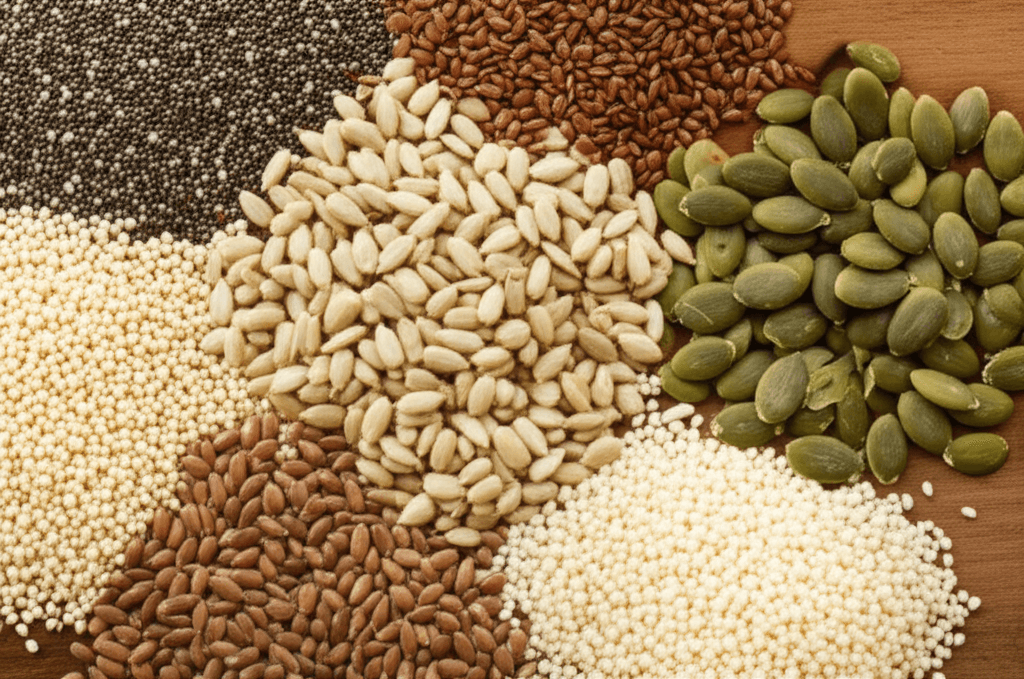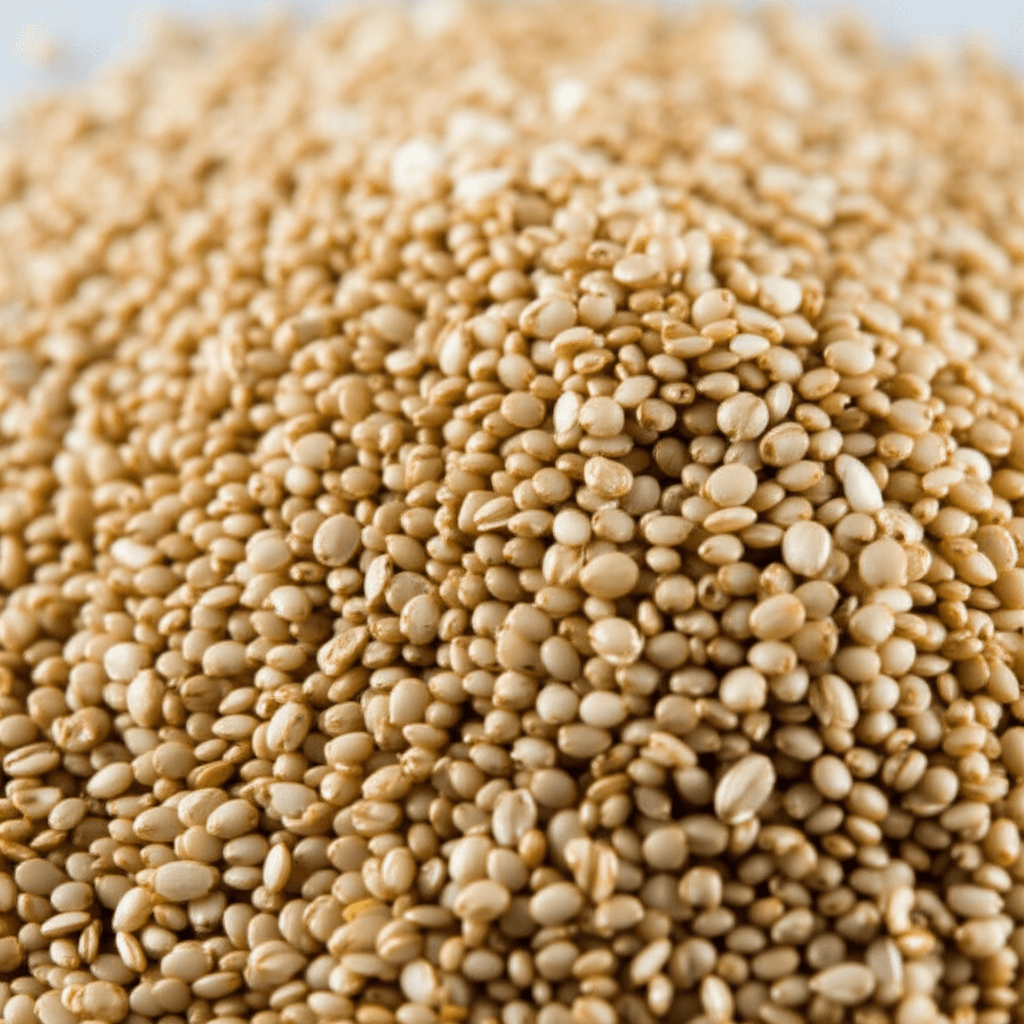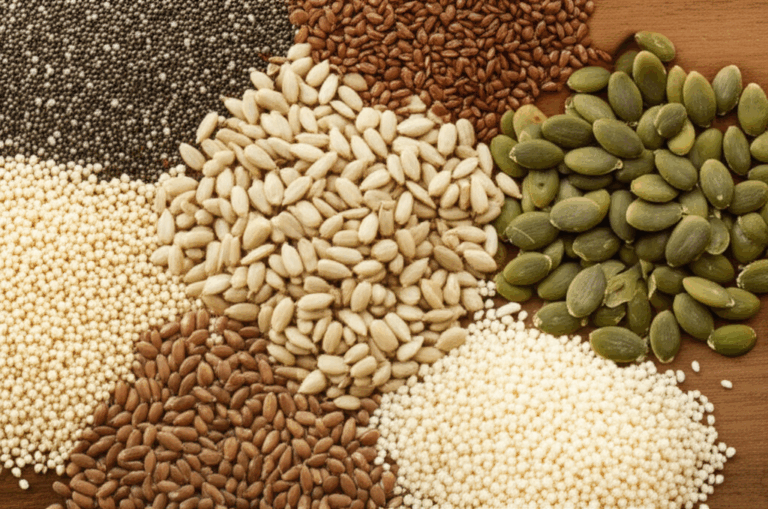In the quest for optimal health, tiny nutritional powerhouses often get overlooked. Seeds, small as they may be, are packed with an impressive array of protein, healthy fats, fiber, vitamins, and minerals that can significantly boost energy levels, promote a healthy gut, and offer a multitude of other health benefits. Nutritionists frequently recommend incorporating these versatile ingredients into daily diets for a simple yet effective health upgrade.
These humble seeds can be easily sprinkled on salads, blended into smoothies, mixed into yogurt or oatmeal, or simply enjoyed as a standalone snack, providing a convenient and delicious way to enhance your nutrient intake.

Why Seeds Are Essential for Your Diet
Seeds are nutrient-dense foods that offer a holistic approach to wellness. They are excellent sources of plant-based protein, crucial for muscle maintenance, hormone balance, and satiety. Beyond protein, their rich fiber content aids digestion, regulates blood sugar, and supports a thriving gut microbiome. Many seeds are also abundant in healthy unsaturated fats, including omega-3 and omega-6 fatty acids, which are vital for heart and brain health, and possess anti-inflammatory properties. Furthermore, they are often loaded with antioxidants, vitamins, and minerals that protect cells from damage and bolster the immune system.

Top High-Protein Seeds for Enhanced Wellness
Here are seven high-protein seeds that nutritionists frequently recommend for their exceptional benefits:
1. Hemp Seeds (Hemp Hearts)
Hemp seeds are often hailed as a “superfood” due to their remarkable nutritional profile. They are considered a complete protein, meaning they contain all nine essential amino acids that the body cannot produce on its own.
- Protein Power: Hemp seeds are among the most protein-rich seeds, offering approximately 9-10 grams of protein per 3 tablespoons, or 32 grams per 100 grams.
- Energy & Heart Health: They are rich in healthy fats, including essential omega-3 and omega-6 fatty acids (with an optimal ratio often found in hemp seeds), which are crucial for heart health and reducing inflammation. These fatty acids, along with magnesium, can help regulate heartbeat and reduce the risk of heart disease.
- Gut Health & Beyond: Whole hemp seeds are a good source of both soluble and insoluble fiber, promoting better digestive health and regularity. They also contain compounds like polyphenols and terpenoids, offering antioxidant, anti-inflammatory, and antimicrobial benefits. Hemp seeds are also a good source of vitamin E and minerals such as phosphorus, potassium, sodium, magnesium, sulfur, calcium, iron, and zinc.
2. Pumpkin Seeds (Pepitas)
These subtly sweet and nutty seeds, also known as pepitas, are more than just a seasonal snack.
- Protein Power: Pumpkin seeds provide a substantial amount of protein, with about 8-8.6 grams per ounce (28 grams), or 30 grams per 100 grams. Their protein quality is comparable to soy protein and they contain essential amino acids.
- Energy & Overall Wellness: They are rich in antioxidants like flavonoids, phenolic acids, vitamin E, and carotenoids, which reduce inflammation and protect cells. Pumpkin seeds also contain magnesium, zinc, and iron, contributing to bone health, immune function, and energy production. Magnesium in pumpkin seeds can help keep blood pressure in check.
- Gut Health & Sleep: Their fiber content (around 1.8 grams per ounce) supports digestion. Furthermore, pumpkin seeds contain tryptophan, an amino acid that can aid in improving sleep quality.
3. Chia Seeds
Tiny black seeds from the Salvia hispanica plant, chia seeds were a staple for ancient Aztecs and Mayans. They are renowned for their ability to absorb liquid and form a gel.
- Protein Power: Chia seeds are a good source of plant-based protein, providing around 4.6-5 grams of protein per 2 tablespoons (or an ounce) and 17 grams per 100 grams. They are a complete protein, containing all nine essential amino acids.
- Energy & Gut Health: Chia seeds are exceptionally high in fiber, with approximately 10 grams per 2 tablespoons, which is about a third of the daily recommendation for adults. This fiber helps regulate bowel movements, prevent constipation, and supports a healthy gut microbiome by acting as a prebiotic and promoting beneficial gut bacteria. The soluble fiber in chia seeds can also help stabilize blood sugar levels by slowing digestion.
- Heart Health & More: They are an excellent source of heart-healthy omega-3 fatty acids, particularly alpha-linolenic acid (ALA), which can help lower cholesterol, triglycerides, and blood pressure. Chia seeds are also rich in antioxidants, minerals like manganese, phosphorus, copper, and selenium, and B vitamins.
4. Flaxseeds (Linseeds)
Also known as linseeds, flaxseeds are a well-known source of fiber and omega-3s, but they also pack a protein punch. For optimal nutrient absorption, it’s recommended to consume flaxseeds ground rather than whole.
- Protein Power: Flaxseeds offer about 3-5 grams of protein per two tablespoons (or an ounce), and 18-20 grams per 100 grams.
- Gut Health & Beyond: They are an excellent source of both soluble and insoluble fiber (around 2-4 grams per tablespoon), which supports digestive health, aids in relieving constipation, and promotes a healthy gut microbiome by acting as a prebiotic.
- Heart Health & Hormone Balance: Flaxseeds are particularly rich in alpha-linolenic acid (ALA), a plant-based omega-3 fatty acid linked to reduced risk of heart disease by lowering blood pressure and cholesterol. They are also loaded with lignans, plant compounds that have antioxidant properties and may help balance hormones.
5. Sunflower Seeds
These widely available seeds are more than just a baseball snack; they are a nutritional powerhouse.
- Protein Power: Sunflower seeds contain about 5.5-5.8 grams of protein per ounce (or 165 calories), and 18.9-24 grams per 100 grams.
- Energy & Immunity: They are rich in B vitamins (especially B1), vitamin E, selenium, manganese, zinc, copper, and magnesium. Vitamin B1 (thiamin) helps convert food to energy, while selenium increases blood flow and oxygen delivery, boosting energy levels. Zinc and selenium also play vital roles in supporting the immune system.
- Heart Health & Muscle Function: The healthy fats, vitamin E, and phytosterols in sunflower seeds can help lower total and “bad” LDL cholesterol, reduce blood pressure, and decrease the risk of cardiovascular disease. Magnesium and pantothenic acid contribute to preventing muscle cramps.
6. Sesame Seeds
Often seen sprinkled on baked goods or incorporated into tahini, sesame seeds are small but mighty.
- Protein Power: Sesame seeds are a good source of plant protein, providing approximately 1.6 grams per tablespoon (9 grams), or 21.9 grams per 100 grams. They contain essential amino acids.
- Gut Health & Antioxidants: They are rich in fiber, which promotes regular bowel movements and supports overall gut health. Sesame seeds are also packed with powerful plant compounds like sesamin and sesamol, which offer antioxidant, anti-inflammatory, and antimicrobial benefits.
- Bone & Heart Health: These seeds are an excellent source of minerals like copper, manganese, calcium, and magnesium, all vital for bone health and proper bodily functions. The healthy fats, fiber, and lignans in sesame seeds can help lower cholesterol and blood pressure, supporting heart health.
7. Quinoa
While often treated as a grain, quinoa is technically a seed and stands out as a complete protein.
- Complete Protein Source: Quinoa is one of the few plant foods that contain all nine essential amino acids, making it a valuable protein source, especially for vegetarians and vegans. One cup of cooked quinoa provides about 8 grams of protein.
- Gut Health & Blood Sugar: It is an excellent source of dietary fiber (around 2.8-5 grams per cooked cup), which aids digestion, reduces constipation and bloating, and helps in managing blood sugar levels. Quinoa can also improve gut health by enhancing the diversity of beneficial gut bacteria.
- Energy & Micronutrients: Quinoa is rich in various vitamins and minerals, including magnesium, phosphorus, manganese, folate, iron, thiamine (B1), and riboflavin (B2). These nutrients contribute to energy metabolism, bone health, and overall well-being. It also contains antioxidants like quercetin and kaempferol, which have anti-inflammatory properties and may protect against chronic conditions.
Incorporating these seven high-protein seeds into your daily diet is a simple yet powerful step towards enhancing your energy, supporting gut health, and boosting overall well-being. Their versatility makes them an easy addition to almost any meal.







